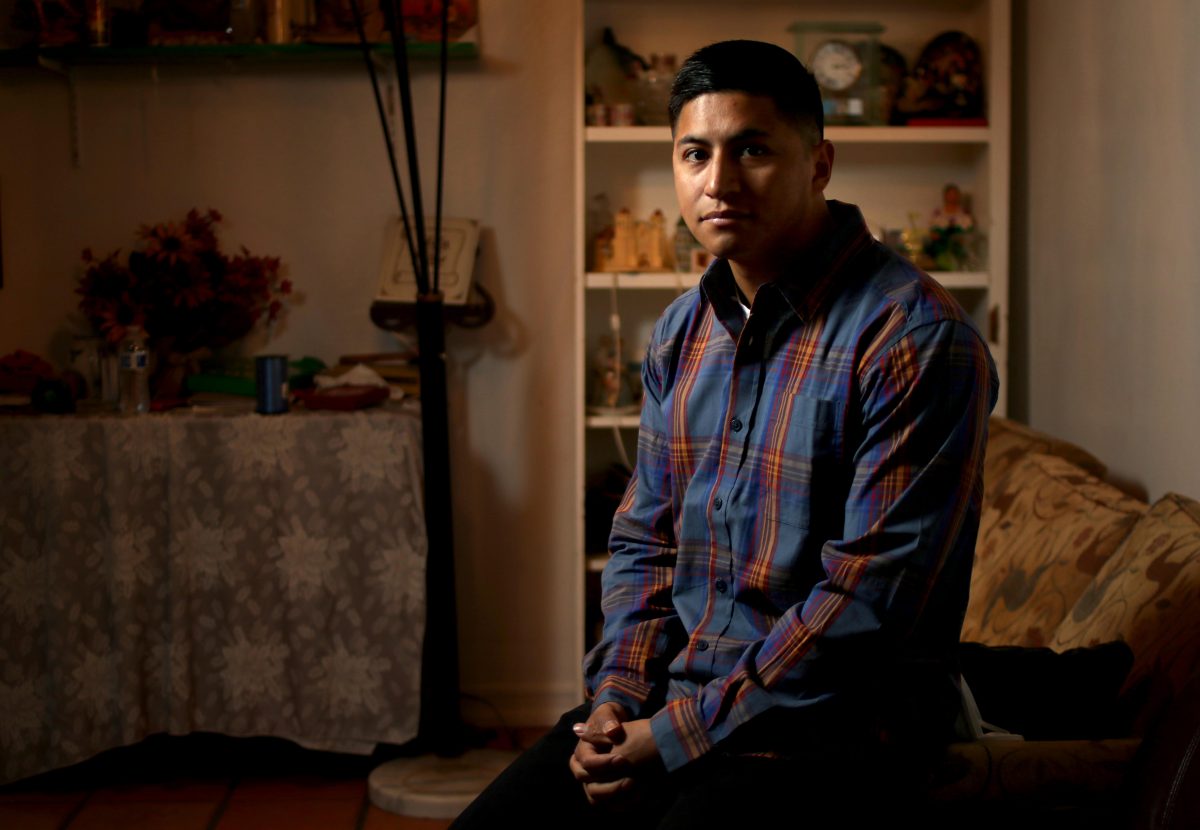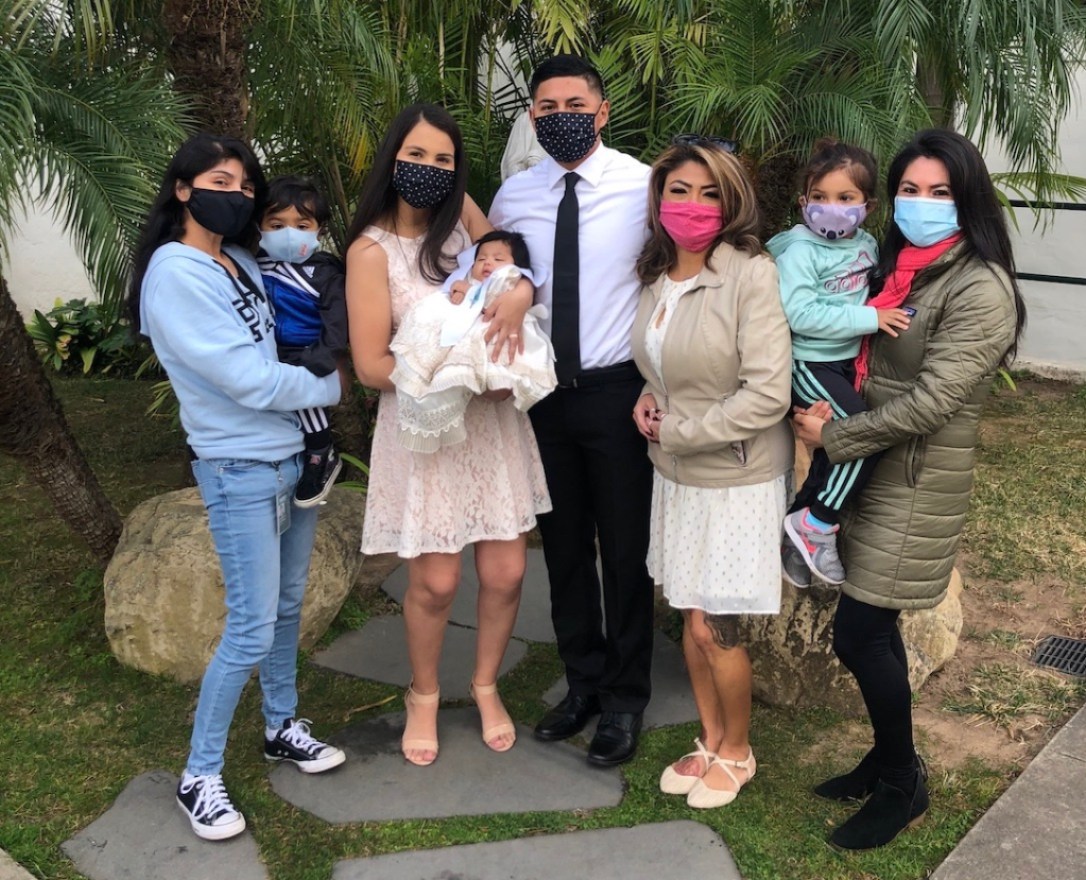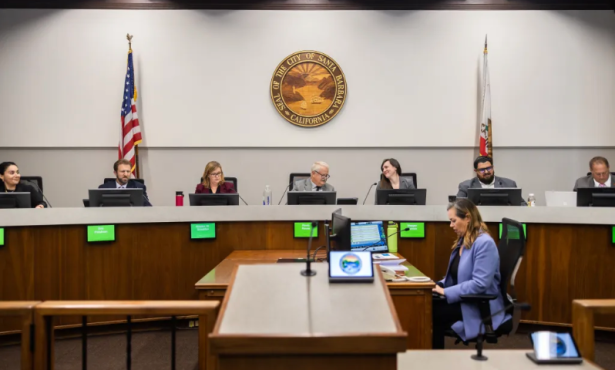Salud Carbajal Reintroduces Protect Patriot Parents Act
Bill Inspired by Goleta Grandmother Who Was Deported After 30 Years

As the new Biden administration has wasted no time in tackling immigration reform as part of its extensive and ambitious agenda, Rep. Salud Carbajal (CA-24) reintroduced the Protect Patriot Parents Act, a piece of legislation that, if enacted into law, would grant permanent residence status to undocumented parents of members of the U.S. military.
“The Protect Patriot Parents Act will allow parents of eligible U.S. military service members to adjust their immigration circumstances to lawful permanent residence status without needing to leave the United States,” announced Carbajal, a Democrat who has represented Santa Barbara since 2017, in a live press conference via Zoom on January 26. “I’m encouraged by President Biden’s bold, immediate, and decisive proposal to reform our flawed immigration system. I am hopeful that we can see this legislation through the finish line under this administration.”
The bill, which applies only to parents of U.S. citizens who are on active duty, are in a reserved component, or have been honorably discharged, was inspired by the story of Juana Flores, a grandmother who lived in Goleta for 30 years before being deported to Mexico in 2019.
Get the top stories in your inbox by signing up for our daily newsletter, Indy Today.
Speaking from her home in Jesús María, a city located in the Mexican state of Aguascalientes, Flores reflected on the strain her removal has placed on her family, which includes her 10 children and 18 grandchildren.
“I think that my children and grandchildren really need me, and it’s been very difficult for me to be here separated from all of them,” Flores said. “I hope that, with all the people who are helping me, we can get things done faster.”
Her son, Cesar Flores, is an active-duty member of the U.S. Air Force who recently became a father to a baby girl. He elaborated on the devastating impact of being separated from his mother for so long while remaining hopeful that they may be reunited before he leaves to serve overseas for a year.


“I’d like to thank God for putting us in this position to speak out about these issues, for giving us this platform to put a spotlight on the immigration system and what’s been going on behind the scenes,” Cesar Flores said. “It’s been very difficult not having my mother around, my nieces and nephews not having their grandmother around…. Family is everything to us, and to be reunited with my mother again would mean the world.”
Cristina Flores, her daughter, and Andrea Gomez Flores, her granddaughter, delivered emotional remarks as well, appealing to the new administration to allow Flores back into the country and reiterating how much her family misses her.
In 1999, two years after the Illegal Immigration Reform and Immigrant Responsibility Act was signed into law, Flores returned to Mexico to visit her sick mother and subsequently re-entered the country, which put her on the radar of the United States Immigration and Customs Enforcement (ICE) and greatly hindered her path to gaining permanent residence status. Flores was granted a stay of removal by the government for a number of years on humanitarian grounds, but with the Trump administration’s rigid stance on illegal immigration, she was forced to return to Mexico two years ago.
Frank Ochoa, a retired judge who is serving as legal counsel, described Flores and her family as “hardworking” and “productive members of the local community.” He also added that the plea to rescind her removal was backed by more than a few prominent local leaders.

“When we asked [the government] to extend the deportation, we had support from members of the County Board of Supervisors — Joan Hartmann, Gregg Hart, Das Williams — the entire Goleta City Council, [and] all of the members of the Santa Barbara City Council,” Ochoa said.
“I don’t know of a circumstance anywhere in the country where an individual has had that kind of support from local government officials asking our federal government officials to show some heart, have some humanitarian consideration, for a family whose foundational plank is a mother and grandmother who has been integral to the family structure and an important part of a local community,” he continued. “Yet, this past administration said, ‘No, you’re outta here.’ That was wrong.”
As for how long before he expects the Protect Patriot Parents Act to be signed into law, Carbajal stated that the first order of business would be to convince the House Judiciary Committee to hold a hearing before passing the bill into the hands of the Senate. “My office will be working with our two U.S. senators from California to try and get them to co-sponsor the bill,” explained Carbajal. “Assuming we can move forward in both chambers, the bill would go to the president’s desk.”
“We have two years at the outset,” he continued, referring to the two-year term limit set for members of the House of Representatives. “All we can do is try to impact the process and the proceedings that exist in Congress to try and move [the bill] forward.”
Every day, the staff of the Santa Barbara Independent works hard to sort out truth from rumor and keep you informed of what’s happening across the entire Santa Barbara community. Now there’s a way to directly enable these efforts. Support the Independent by making a direct contribution or with a subscription to Indy+.




You must be logged in to post a comment.